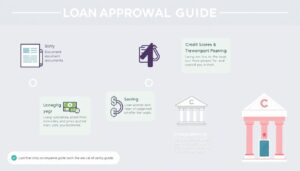This guide explores the unique world of co-operative banks. They offer a different banking experience compared to traditional banks, especially in New Zealand.
Applying for bank loans can seem daunting. But, this article breaks down the process into simple steps. You’ll learn about eligibility and what documents you need. This way, you can confidently apply for a loan.
Ready to find out how to get the financial help you need? Let’s dive in and learn the practical steps to success.
Understanding Co-operative Bank Loans
Co-operative bank loans are key in the financial world. They offer special features for their members. Being owned by members, co-operative banks focus on customer needs over profits. This makes them different from regular banks.
They often have better interest rates. This is great for those who want loans that are affordable and flexible.
Choosing co-operative bank loans means getting personal service. Borrowers get to know their bank better. This leads to better support and understanding during the loan process.
Co-operative banks in New Zealand have many loan types. There are personal loans for specific needs and mortgages for buying homes. Each loan is designed to meet different customer needs, offering valuable options for financial help.
Bank Loans: How to Apply
Learning how to apply for a bank loan through a co-operative bank can simplify the process. The first step is to identify your personal financial needs. This helps you figure out how much you need and why.
Next, you should research different loan options. It’s important to compare interest rates and terms from various co-operative banks. This comparison helps you choose the best loan for your needs.
After deciding on your loan needs and options, the application process starts with pre-qualification. Pre-qualification gives you an idea of whether you’ll be approved. It’s based on your financial health and helps set realistic expectations.
Finally, you need to gather all the required documents and fill out the application form. It’s crucial to provide accurate information and submit all documents to speed up the approval process.
Loan Application Process Explained
The loan application process has several important steps. First, you need to fill out the application form correctly. This part asks for your financial details like income, expenses, and debts. Giving accurate and honest information is key to a good outcome.
Next, you’ll have interviews with bank representatives. Be ready to talk about your finances and show you know the rules. Being prepared can make a good impression.
Banks look at many things to decide if they can lend to you. They check your credit history, which shows how well you’ve managed money before. They also look at how much you earn to see if you can pay back the loan.
Knowing these steps can help you feel more confident when applying for a loan. It can also improve your chances of getting the money you need.
Documents Needed for Loan Application
To apply for bank loans, knowing what documents you need is key. These documents prove your financial situation and help show you’re eligible for a loan.
You’ll need to show your identity—this can be a passport, driver’s licence, or national ID. It helps the lender verify you are who you say you are, preventing fraud.
You must also provide recent financial statements. These are your bank statements showing your spending and financial health. Lenders use these to check how well you manage your money.
Proof of income is another requirement. This could include payslips, tax returns, or proof of other income. Lenders need to know that you can pay back the loan.
Additionally, listing your current debts is essential. Providing a full list of loans or credit cards shows your financial commitments. It helps lenders assess how much you can borrow.
Some applicants may need to provide additional documents, such as self-employed individuals. They may need to show more detailed income records.
Loan Approval Requirements
Knowing what banks need to approve loans is key. Different criteria affect how likely you are to get a loan. Important factors include your credit score, income, debt, and job history.
UNCOMPLICATED PROCEDURE
Find out How to Secure a Co-operative Loan Quickly
Everything you need to know
*You will stay on the same site.
Credit scores show how reliable you are with money. A better score means better loan deals. Banks check your income to make sure you can pay back the loan. They look at things like your pay slips or tax returns.
Debt-to-income ratios compare your monthly debt to your income. This helps banks see if you can handle more debt. Having a steady job shows you’re reliable and lowers the bank’s risk.
Meeting these requirements can help you get a loan. But, not meeting them might mean you’re turned down or get bad terms. You can boost your chances by keeping your credit score up and showing steady income.
Loan Application Tips for Success
To improve your chances of getting a loan, keeping your credit report in good shape is key. Lenders, including co-operative banks, check this report to see if you’re financially stable. Make sure to check for errors and fix them fast to boost your score.
Having a good financial reputation can also help you get better loan terms. This is especially true when trying to get a bank loan.
Creating a personal budget is another important step. It helps you understand your income, expenses, and savings. This shows lenders you can handle your finances well.
When applying for a loan, it’s important to communicate well with the bank. Answering questions quickly and providing extra documents when needed can speed up the process. Being proactive and clear about your financial situation shows you’re serious and well-prepared.






